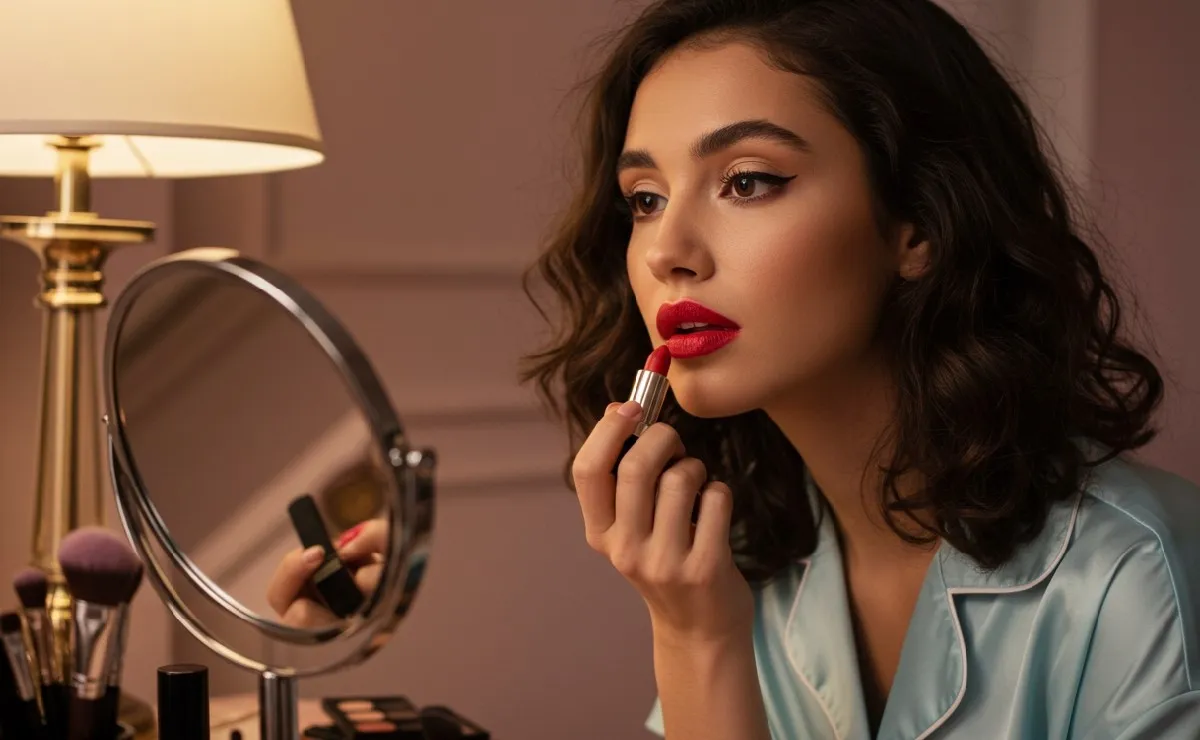Keeping a liquid foundation that you use only in the summer or that lipstick you applied once “just in case” is a common, but dangerous, practice.
Although makeup and skincare products may appear intact, their chemical composition changes over time, and using them past the expiration date can damage your skin.
Unlike food products, many cosmetics don’t include a conventional expiration date. Instead, they indicate their shelf life with an open jar symbol accompanied by numbers like “6M,” “12M,” or “24M,” indicating the number of months of safe use after opening the container.
Ignoring this symbol can have not only aesthetic but also medical consequences for your skin.
Main risks of using expired makeup
Bacterial and fungal contamination
When exposed to air and contact with brushes, sponges, or fingers, products become a breeding ground for microorganisms. Applying them can cause irritation, dermatitis, acne, styes, or conjunctivitis, especially in the case of mascaras and eyeliners.
Loss of effectiveness of active ingredients.
Cosmetics such as creams, serums, and sunscreens lose effectiveness over time. An expired sunscreen, for example, can leave skin unprotected from UV rays, while an expired foundation can lose coverage and hold .
Visible changes in color, texture, and odor:
A foundation that separates, a lipstick that smells rancid, or a lumpy cream are signs of deterioration. These physical changes are indications of oxidation or bacterial growth and should be taken as a warning to stop using them.
Clogged pores and premature aging.
Prolonged use of expired products can lead to clogged pores, dehydration, and accelerated skin aging. An expired eye cream, for example, could accentuate fine lines instead of smoothing them out.
How long do cosmetics last?
Shelf life varies depending on the formulation, product type, and storage. Here’s a general guide based on the PAO symbol:
- Mascara: 6 months
- Shadows, blushes, and powders: 12 to 36 months
- Liquid foundations, concealers, and creams: 12 to 24 months
- Eye and lip pencils: 12 months
- Sunscreens: 12 months
- Nail polishes: 12 months
- Makeup removers: 6 to 12 months
- Lipsticks: 12 to 36 months
How to best preserve your makeup and skincare
To extend the shelf life and safety of your cosmetics:
- Store products in cool, dry places, away from sunlight and moisture (avoid bathrooms).
- Close containers tightly after each use.
- Wash brushes and sponges weekly.
- Label the opening date for better control.
- Do not share personal products, especially eye and lip products.
Using expired makeup not only affects your appearance but also your skin’s health. Checking your vanity frequently, disposing of expired products, and following good storage practices are essential to maintaining a safe and effective beauty routine.






















+ There are no comments
Add yours